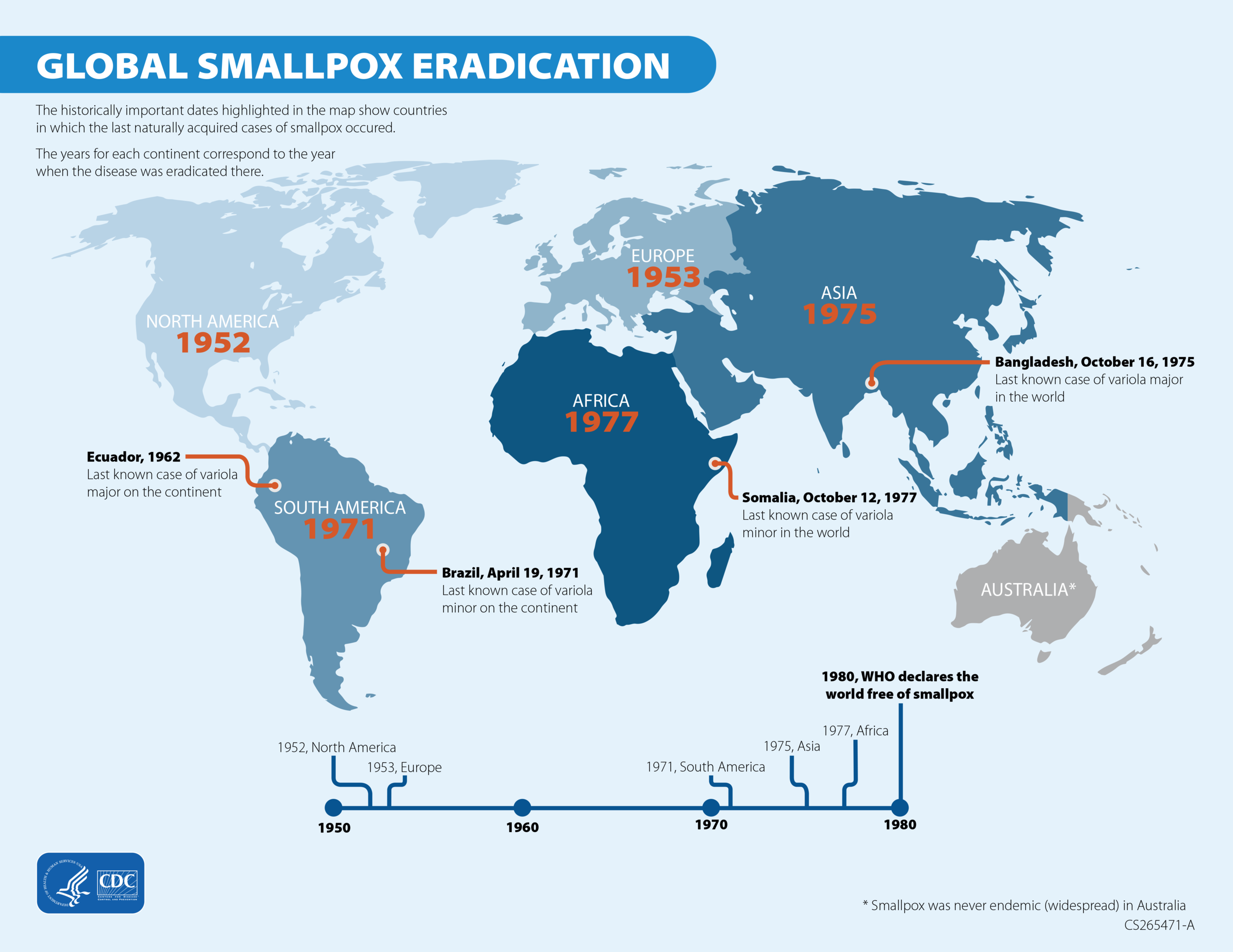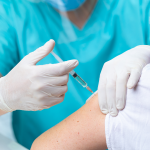When You Are Eligible, Please Get Vaccinated!
Why Do Vaccines Help?
The best way to understand how vaccines help everyone is to look at specific cases where the disease was eradicated with the very first vaccine for smallpox. Smallpox was a devastating disease. On average, 3 out of every 10 people who got it died. Those who survived were usually left with scars, which were sometimes severe.
Smallpox is thought to date back to the Egyptian Empire around the 3rd century BCE (Before Common Era), based on a smallpox-like rash found on three mummies. The earliest written description of a disease that clearly resembles smallpox appeared in China in the 4th century CE (Common Era). From there, smallpox traveled all over the world over time.
- 7th Century – Arab expansion spreads smallpox into northern Africa, Spain, and Portugal.
- 11th Century – Crusades further spread smallpox in Europe.
- 15th Century – Portuguese occupation introduces smallpox into part of western Africa.
- 16th Century – European colonization and the African slave trade import smallpox into the Caribbean and Central and South America.
- 17th Century – European colonization imports smallpox into North America.
- 18th Century – Exploration by Great Britain introduces smallpox into Australia.
The basis for vaccination began in 1796 when an English doctor named Edward Jenner observed that milkmaids who had gotten cowpox did not show any symptoms of smallpox after exposure. From there the vaccine was invented! However it was not until, 1959, the World Health Organization (WHO) initiated a plan to rid the world of smallpox. Large scale vaccination plans begin all over the world, and the last recorded death was 1978. Then on May 8, 1980, the 33rd World Health Assembly officially declared the eradication of smallpox, and is considered the biggest achievement in international public health.
What is Herd immunity?
The key to fighting a disease with vaccination is Herd Immunity! When someone is vaccinated, they are very likely to be protected against the targeted disease. But not everyone can be vaccinated or cannot be vaccinated fast enough. For example, people who have severe allergies to some vaccine components may not be able to get vaccinated with certain vaccines. These people can still be protected if they live in and amongst others who are vaccinated. When a lot of people in a community are vaccinated the pathogen has a hard time circulating because most of the people it encounters are immune. This is herd immunity.
No single vaccine provides 100% protection, and herd immunity does not provide full protection to those who cannot safely be vaccinated. But with herd immunity, these people will have substantial protection, thanks to those around them being vaccinated. Throughout history, humans have successfully used vaccines and herd immunity to protect societies for a number of life-threatening diseases, including meningitis, measles and wild poliovirus.
Vaccinating protects yourself and protects those in the community who are unable to be vaccinated. If you are able to, get vaccinated.





